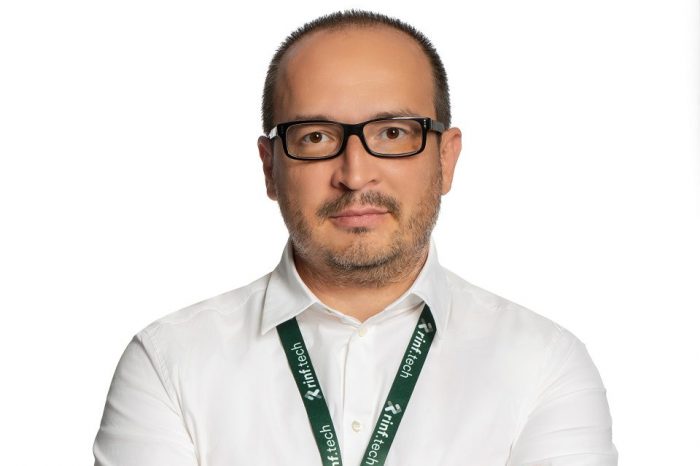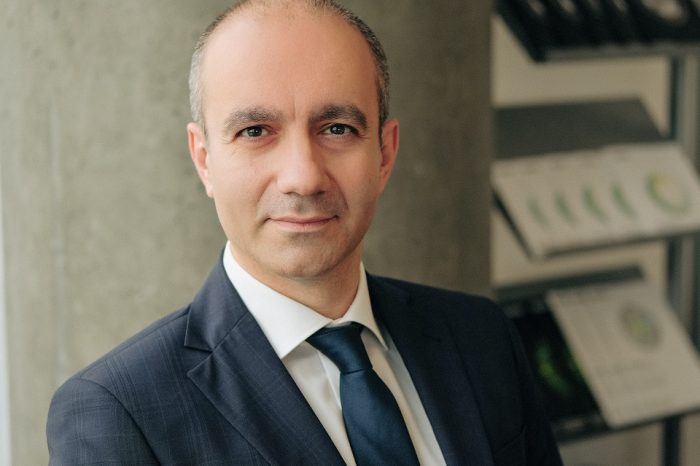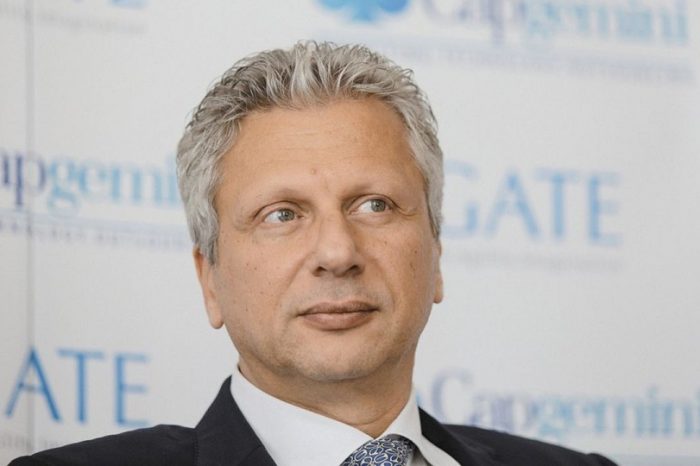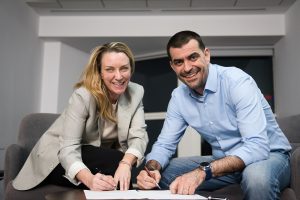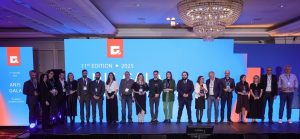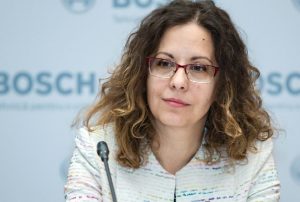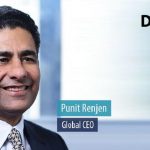Deloitte marks its 10th consecutive year of growth of the group, globally
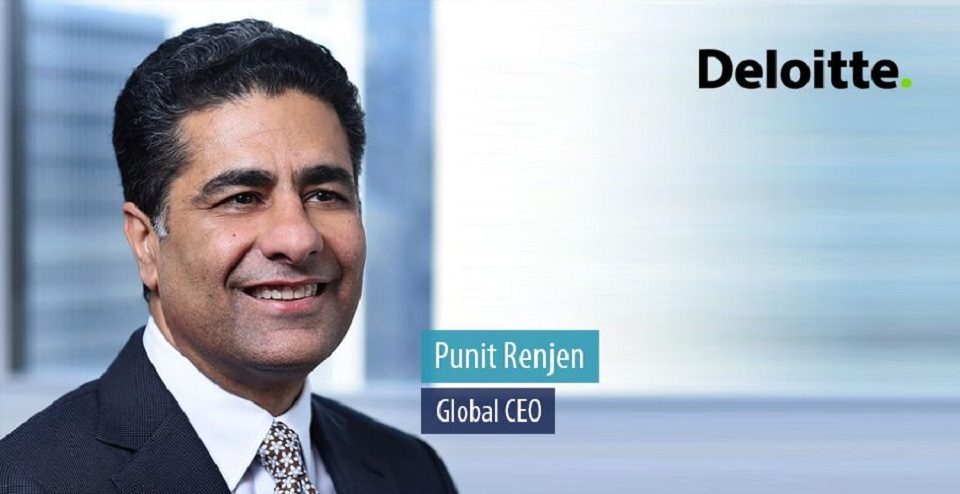
Deloitte today reported aggregate member firm revenue of US$46.2 billion for the fiscal year ending 31 May 2019 (FY2019). This is a 9.4 percent revenue increase in local currency and a US$3 billion increase over last year.
“At the core of Deloitte’s culture and business model is the fundamental belief that we exist to make a positive impact for clients, our people, and the communities in which we live and work. Our performance in FY2019 is evidence that a purpose-led approach works,” says Punit Renjen, Deloitte Global CEO. “Disruption and transformation are shaping business and society today, imposing new and urgent responsibilities on business leaders. Deloitte is meeting the challenges by building an equitable and sustainable business for the long term and holding itself accountable for the triple-bottom line of people, profit, and planet.”
People – Diversity and inclusion power the workforce of the future
Deloitte believes that its workforce must reflect the world around it if it is to succeed in solving its clients’ toughest challenges.
This year, Deloitte launched an initiative to globally coordinate its diversity and inclusion efforts. This is part of Deloitte’s long-standing commitment to talent development and building a workforce with the skills to solve the business and societal challenges of the Fourth Industrial Revolution. The key focus of the initiative is an effort to attract, retain, and increase the representation of women and minorities at all levels within Deloitte.
“While we are proud of our progress, we know we have more work to do to enable the next generation of leaders to reach their full potential. We are making conscious efforts to take steps to increase the number of women and underrepresented minorities in our leadership ranks throughout the organization, while recognizing that diversity and inclusion efforts are most successful when supported by the right environment, culture, and policies,” says Michele Parmelee, Deloitte Global Chief People and Purpose Officer. “Our strategy includes using data analytics to inform actions, modifying talent processes, setting global standards, and providing our people with more development, sponsorship, and leadership opportunities.”
In FY2019, Deloitte increased its workforce to approximately 312,000 professionals, a 9 percent increase. Growth occurred across all regions, with more than 90,000 professionals hired.
As Deloitte’s workforce continues to grow and as transformative technologies─such as digital, cloud, analytics, and artificial intelligence (AI)─become increasingly pervasive, Deloitte is focused on equipping its people with new capabilities that will enable them to be more tech savvy and future-ready. This, in turn, will allow Deloitte to help clients capitalize on these revolutionary innovations.
Deloitte combines common curricula, technology, and innovative learning facilities, such as Deloitte University (DU), to provide its people with consistent leadership, industry, and technical capabilities. Deloitte’s significant long-term investment in the Deloitte University system enables its people to advance their careers and participate in leadership-development programs in a world-class learning environment. In FY2019, nearly 133,000 Deloitte people around the world experienced DU. Additionally, a new personalized digital experience, powered by AI and machine learning, will provide Deloitte professionals with learning recommendations and access to the latest knowledge and skills-based learning they need, when and where they need it.
In addition to preparing its people and clients with the skills required for the jobs of the future, Deloitte is committed to helping millions of people around the world find meaningful work in the new economy. By 2030, Deloitte’s global societal impact initiative, WorldClass, aims to empower 50 million people by improving education outcomes, developing job skills, and providing access to opportunities. Since launching two years ago, WorldClass has reached 5.3 million people. This year, WorldClass continued to expand, reaching 3.8 million people and launching new programs in India, China, and South Africa.
In alignment with Deloitte’s global diversity and inclusion initiative, WorldClass includes a focus on identifying community opportunities and stakeholders who can raise the aspirations, confidence, and engagement of girls and young women, thereby preparing them for jobs, entrepreneurial endeavors, and the Fourth Industrial Revolution. For example, WorldClass in India is focused on accelerating high-impact solutions and promoting cross-sector collaboration with businesses, government, and nonprofits in order to help 10 million girls and women be better prepared for the future of work.
Profit – Record revenue marks 10th consecutive year of growth
Deloitte’s strategy and multidisciplinary business model continued to drive success globally in FY2019. All five business areas—Audit & Assurance, Consulting, Financial Advisory, Risk Advisory, and Tax & Legal—grew during this time.
All six industries also contributed to Deloitte’s growth in FY2019. Growth among the industries was led by Energy, Resources & Industrials, which grew at 20.4 percent, followed by Life Sciences & Health Care at 12.4 percent, Technology, Media & Telecommunications at 10.3 percent, Consumer at 8.5 percent, Financial Services at 5.9 percent, and Government & Public Services at 2.9 percent. Financial Services was the top contributor with US$12.4 billion in aggregate global revenue for FY2019.
Among the regions, revenue in Asia Pacific grew fastest with a local currency growth of 11.6 percent, followed by the Americas at 10.4 percent, and Europe, the Middle East, and Africa (EMEA) at 7.9 percent.
“Our FY2019 results are a validation of Deloitte’s strategy to deliver high-quality, globally consistent service to our clients while continuing to serve the public interest and working to restore trust in capital markets. We evolved and innovated our offerings to address current and emerging client needs, and we increased our investments in learning and development to build a workforce with deep knowledge, capabilities, and leading-edge insights,” says Renjen.


